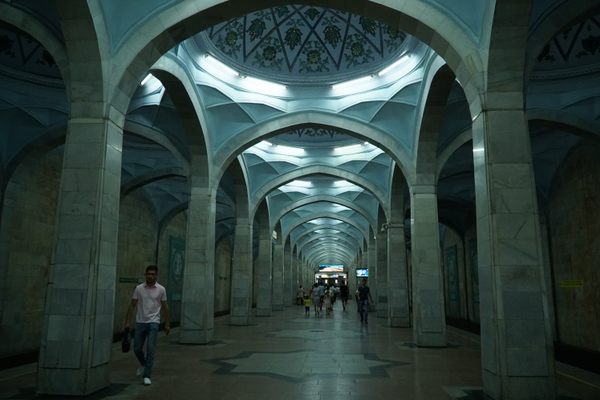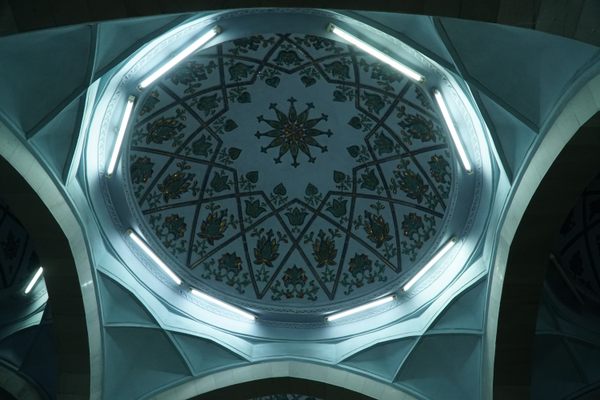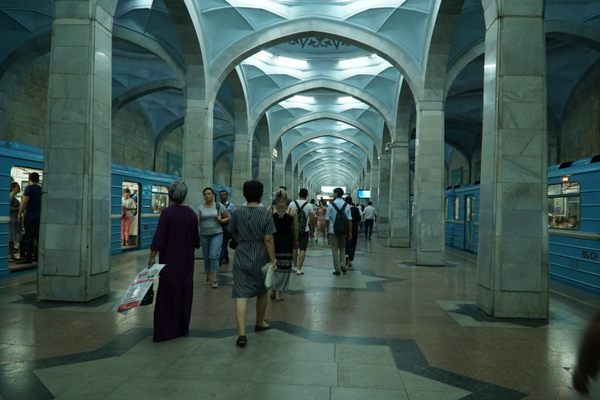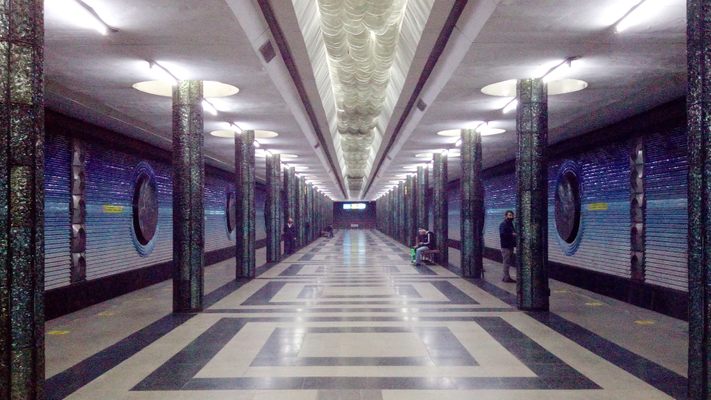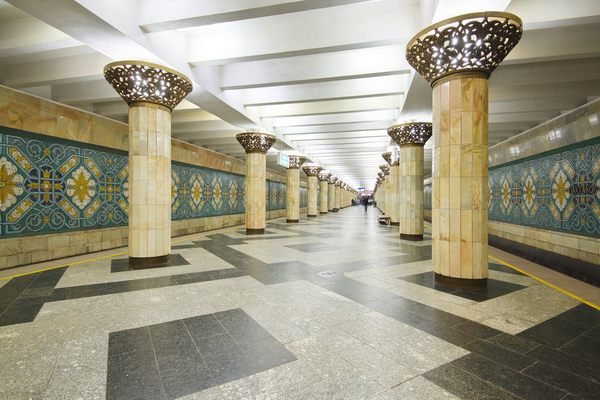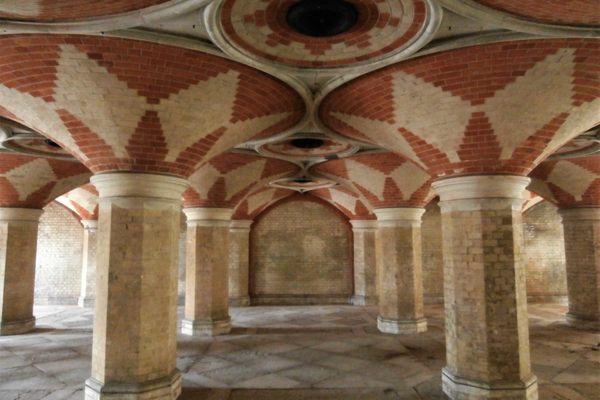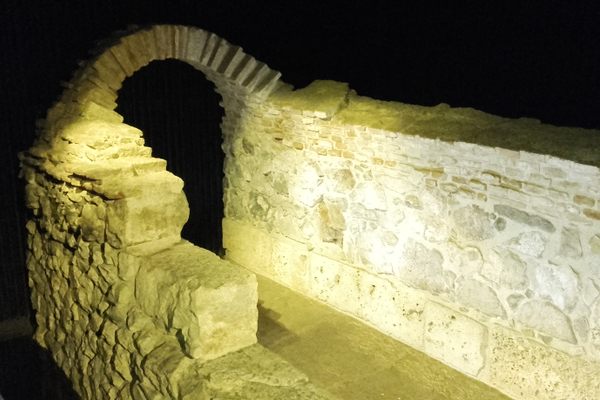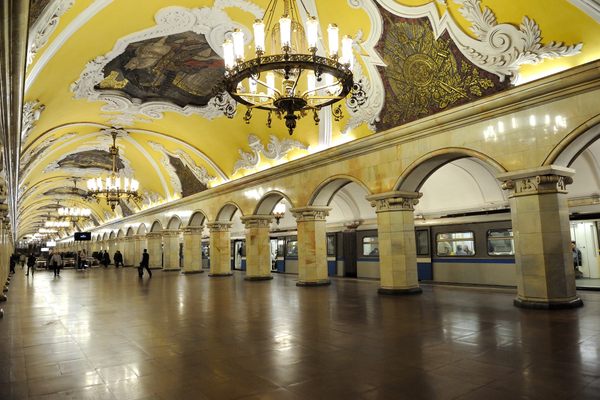About
The strikingly gorgeous stations of the Tashkent Metro may rival those in Moscow, even considered by some to be the most beautiful in the world. But they remain largely obscure because photography inside the metro was not only strictly forbidden, but illegal until June 2018.
Established in 1977, the Tashkent Metro is the oldest subway in Central Asia and seventh of the 13 metro systems in the former Soviet Union. It consists of four lines serving 48 stations, each of which is designed after a particular theme. The whole metro was originally planned to be a city-wide nuclear shelter, and the Uzbek government classified it as a military facility, which was the reason behind its decades-long ban on photography.
The metro is home to a hidden underground world of arches and chandeliers, marble columns, and mosque-like vaults. The styles range from classical to retro-futuristic, a legacy of Soviet architecture. Many of the stations are decorated with murals depicting scenes of historic interest, from a wall of blue and yellow mosaic tiles to ceramic reliefs inspired by the poetry of Ali-Shir Nava'i.
One of the most notable stations is Kosmonavtlar ("Cosmonauts"), which is themed after space exploration. The architectural designs are inspired by the Milky Way, with specks of glass "stars" sparkling through the colonnade. Throughout the station, there are blue ceramic murals of space-related figures such as Ulugh Beg, Valentina Tereshkova, Yuri Gagarin, and even Icarus. The Alisher Navoiy station, on the other hand, leans more towards Islamic architecture, looking like a cyberpunk mosque.
The fourth line of the Tashkent Metro, Circle Line, was only recently completed in 2020, along with the northern terminus of Yunusobod Line, Turkiston. It may not be as retro as the other stations, but it is meant to be a culmination of the metro's history—combining the distinct styles of Soviet and traditional Uzbek architecture, a modern masterpiece.
Related Tags
Central Asia Road Trip: Backroads & Bazaars
A 2-Week, 4-Country Odyssey.
Book NowPublished
August 31, 2023
